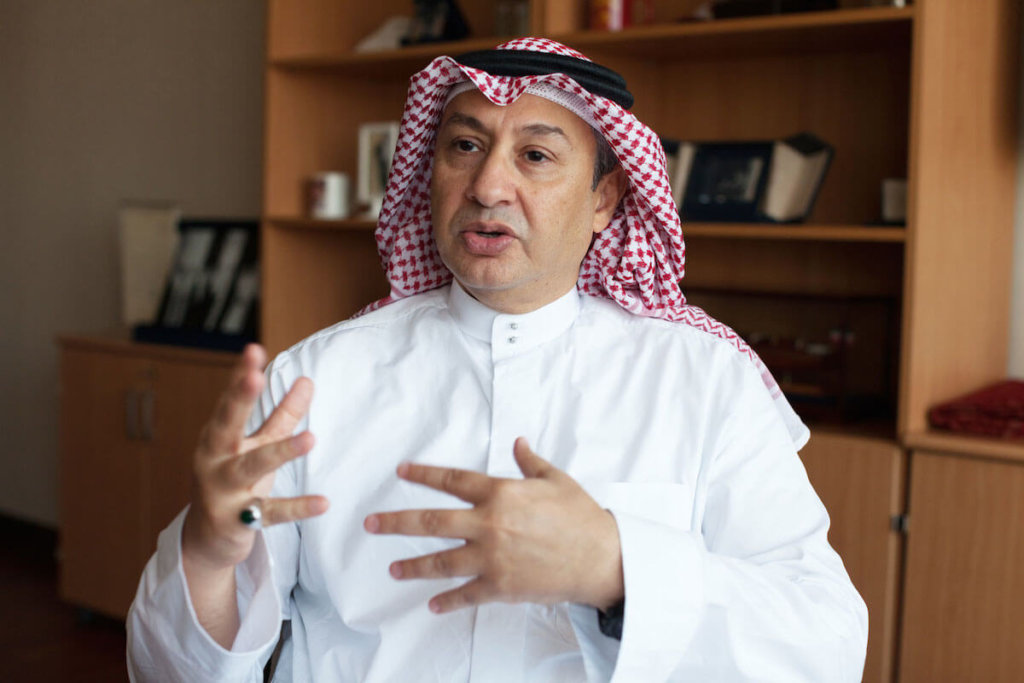ADVERTORIAL: Interview with Ammar A. Shata, Executive Director and Chief Executive Officer of Alkhabeer Capital
The Islamic Waqf (endowment) structure is a leading form of charitable social activity that has been at the center of Islamic civilization throughout history. Although the Western World was influenced by the concept of the Islamic Waqf and its noble objectives, the Waqf system, with its background and purposes, remains a unique and outstanding characteristic methodology of the Islamic civilization, as the principal’s benefit is charitable, even when the Waqf is a family Waqf.
We sat with the Executive Director and Chief Executive Officer of Alkhabeer Capital, Mr. Ammar A. Shata, to learn more about Islamic Waqf, its stages, development, future outlook and the vital role it plays in societies in our modern age.
Waqf has been a central component of Islamic history for more than 1400 years. What is the current state of the Waqf industry in the Islamic World today?
Islamic Waqf is a religious endowment that is based on a donation (tabarru’) of ownership of an income generating asset and uses the proceeds for charitable purposes, be they social, educational, cultural or otherwise. The goal of the Waqf is to allocate the principal capital for a benefit to a certain entity or entities, as determined by the Waqf founder, known as the Waqif.
The Waqf Industry has developed over centuries to include serving science and research. Historically, Waqfs had unique goals and objectives. This is evident when we look at scientific and cultural success stories from the days of the Ottoman Empire, and continues to exist today, hundreds of years later.
Take, for example, a Waqf that was founded to ensure the upkeep of the horses of soldiers after their martyrdom, as a form of honoring the martyrs.
There have also even been a number of Waqf structures to take in stray animals, for the purpose of feeding them and caring for them, similar to animal shelters in the United States and Europe.
What characterizes Waqf? And what is its effect on the development of society?
Waqf structures aim to support and develop civil society organizations non-profits and non-governmental organizations (NGOs). The development and expansion of independent entities and social services is the key to the development of society as a whole, and serves society’s objectives and interests, making it an independent and self-sufficient society, that does not rely on government resources. This leads to the development of a sector that is as efficient and effective as the private sector, and is more efficient than the public sector.
The importance of support and development of civil society organizations has led to the awareness in the West and the non-Islamic World of the importance of the Waqf concept. For example “Trust Funds”, which are now a huge industry, borrow on many concepts of Waqf. Just as important, endowment funds that support universities in the United States have reached over US $ 500 billion in value, according to NACUBO 2014.
Throughout history, governments have tried to control Waqf funds and wealth in order to control civil society organizations and their ability act independently of the aims of the government. But when Waqf is directed by the state towards specific or political objectives, such control is considered wrong and causes harm to the Waqf itself, its efficiency and its objectives. Unfortunately, there are many instances throughout history where Waqf assets in Islamic and non-Islamic countries have been hampered by government intervention.
[ms-protect-content id=”4069,4129″]
Alkhabeer Capital WAQF Program, an innovative holistic solution with the ability to address most of the challenges facing traditional Awqaf.
What in your opinion are the main challenges affecting the Waqf sector, and existing Waqf entities? Do you believe that Alkhabeer’s services are capable of developing solutions to overcome those challenges?
There are many challenges, whether based on studies we conducted, or through Waqf and investment consultations, that we have addressed with our strategic partners in the Waqf sector. Some of these challenges include: poor drafting of the Waqf deeds (Suk); a lack of clarity of instructions for the Waqf; and limited investment experience of the Waqf Trustee’s (Nazer). But Waqfs are also hampered by poor performance of regulatory authorities; poor, or a total lack of governance between the Waqf structure parties, the Waqf Trustee and its current and future beneficiaries. We also believe there are other aspects that we consider to be essential requisites for the successful performance of the Waqf’s role as assigned by the Waqif.
One of the most significant aspects of Alkhabeer’s Waqf services (“WAQF” Program) is the ability to address most of the challenges facing the traditional Waqf structures. It starts with the professional drafting of the Waqf deed, including the administrative and investment aspects with fluency and ease, to include the foreseeable and distant future; to the creation of an innovative Waqf structure; establishment of governance of the Waqf and stakeholders; instituting internal and external control; as well as the submission of periodic audited reports.
The WAQF Program also provides a wealth management service that uses an open platform approach, along with the development of the investment strategy consistent with the guidelines of the Waqf.
What is the open platform approach?
It is a concept that places the interests of the client first and foremost, commensurate with the client’s investment strategy, by independently selecting the best asset managers, investing in all types of assets without geographic limitations, and the selection of various investment instruments to maximize portfolio returns.
What aspects have played a role in creating the current demand for innovative Waqf structures?
When we started pursuing advisory solutions addressing the challenges faced by traditional Waqf entities, we realized that a holistic approach to Waqf solutions is needed when entering this sector. The challenge is divided into two main phases. First is the establishment and structuring of the Waqf entity, and second, is the management of the Waqf’s assets in a way that preserves the Waqif’s wealth and realizes targeted returns, better known as the Waqf’s Rent.
Thus, wealth management services concerned with the preservation of wealth became a more pressing issue for a vast majority of our client base who are interested in the Waqf sector.
In this sense, the WAQF Program, when providing advisory services concerned with Waqf asset investments, will rely on the open platform approach in wealth management as mentioned earlier. This approach gives priority to the interests of the Waqf, first and foremost by selecting the best asset management and the right investment instruments with total independence, and subject to specific conditions for the management of the investments of the Waqf.
Do you believe that the Waqf sector is responding favorably to Alkhabeer’s Waqf solutions?
With civil society organizations pursuing the creation of independent and sustainable sources of income to support their charitable and social activities, innovative Waqf solutions are perfectly aligned to support such efforts through the creation of an independent Waqf structure. These structures enjoy immunity from external interference, with the smooth investment of assets subject to governance, transparency and professional management.
The above-mentioned factors point to an unsaturated demand for advanced Waqf solutions within the current business climate. Our advisory services will undoubtedly play an important role in the Waqf field to cater to market demand by providing holistic Waqf solutions in compliance with applicable laws, regulations and standards.
What markets will be targeted in the outset, and will WAQF Program activities be focused only within the Kingdom of Saudi Arabia?
Alkhabeer’s WAQF Program targets clients desiring to establish new private Waqfs, including, though not limited to, high net worth individuals, family offices, charitable foundations and educational institutions. The focus will be on the Saudi market in the first phase, but plan to expand the program accordingly to include international markets, commensurate with Waqf sector requirements and economic and investment conditions at the time.
What is Alkhabeer’s main role in this industry?
Alkhabeer’s role is in assisting clients to develop suitable Waqf structures to serve the purposes of the Waqif, as well as to create an investment strategy based on the Waqif’s objectives and conditions, with emphasis on the management of the Waqf portfolio using an open platform approach, under professional supervision and control and with clear governance.
What is Alkhabeer’s vision for enhancing and developing the Waqf industry using state of the art technology?
We believe that it is necessary to revive the Waqf industry to support the sustainability of benefits provided by Alkhabeer in the future. This is a state of the art service provided to civil society organizations in the Muslim world, particularly in countries genuinely concerned with this industry, such as the Kingdom of Saudi Arabia. With this service we believe we can provide a lasting contribution and deliver a sustainable service to our society.
As a result we are particularly concerned with the innovative restructuring of Waqf on the following basis:
Separation between Waqf supervision and Waqf management.
Compliance with disclosure requirements and related governance of each Waqf beneficiary, to be familiarized with his/her rights, and the preservation of the rights of all Waqf beneficiaries at present and in the future.
Sustainability and professional management of capital to ensure protection against capital erosion and diminished purchasing power, with the distribution of benefits to existing recipients, without prejudice to the rights of the future generations of beneficiaries.
Tharawat Magazine, Issue 28, 2015
[/ms-protect-content]

